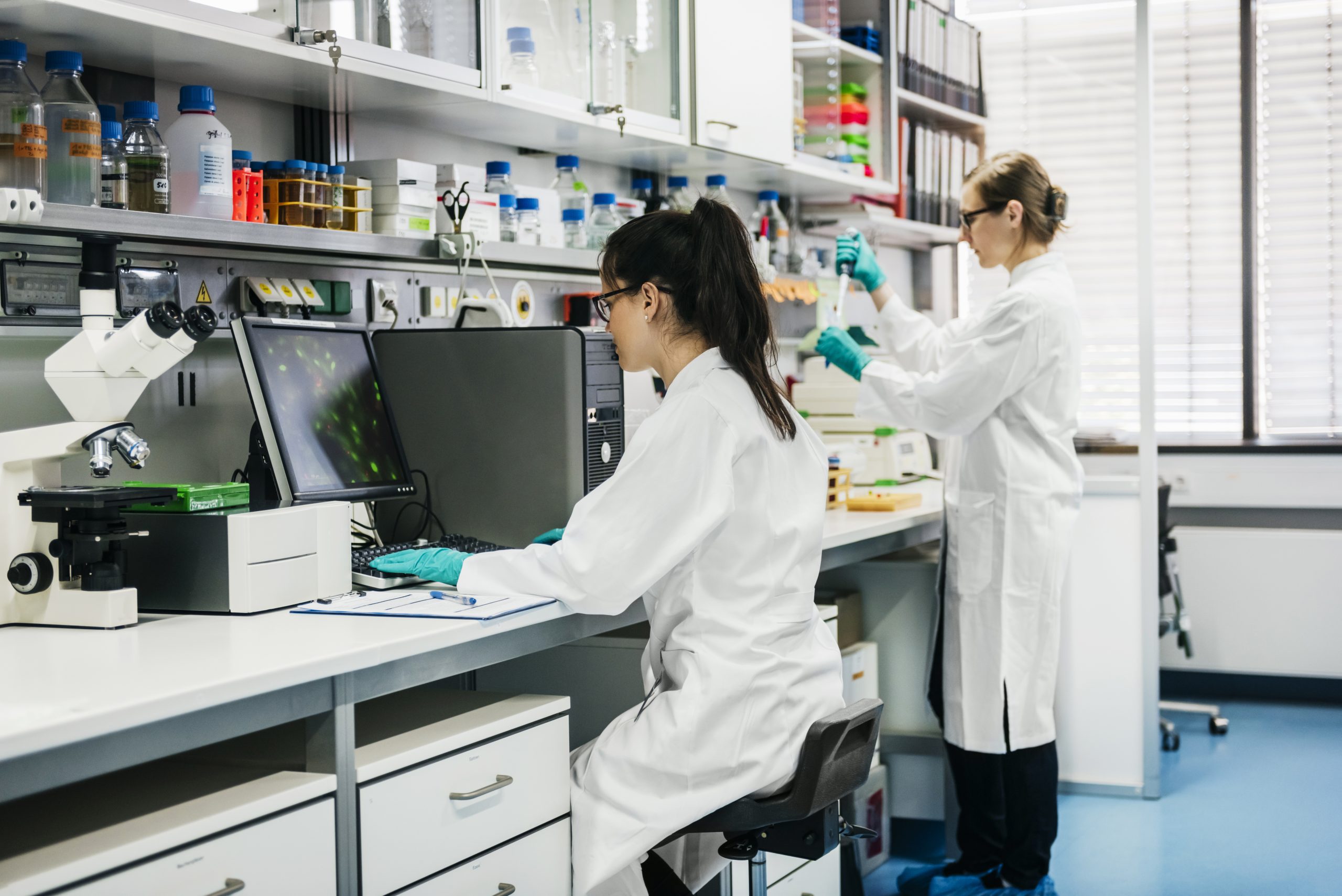The Novo Nordisk Foundation is committing up to DKK 180.2 million over five years to extend and expand the Open Discovery Innovation Network (ODIN), a patent-free collaboration platform that successfully established the first Open Innovation in Science (OIS) framework in Denmark. OIS is a collaboration model, where industry and academia join forces to co-create research projects and share their results openly with the public for anyone to use.
ODIN was developed in consultation with nine core industry partners and was established as a pilot project at Aarhus University in 2020. The platform has funded 11 projects, providing industry and academic researchers with an open IP framework that accelerates collaboration in precompetitive research projects.
Marie Louise Conradsen, Head of Open Science at Aarhus University, says ODIN’s patent-free approach greatly reduces barriers for industry-academia collaboration. “We’ve seen an incredible level of interest from both sectors, and the framework has been effective in fostering research projects that are both high risk, high reward and are driven by real-world needs—to an extent we do not usually see in our other collaboration models,” explains Marie Louise Conradsen.
“Our 11 funded projects have already opened up new research avenues; they are preparing more than 40+ publications; and they are planning a series of follow-on innovation projects, where the involved companies and researchers will mature the open results towards specific commercial applications in closed settings. ODIN has even spun out a new company. Needless to say, the open innovation model has exceeded all of our expectations.”
Professor Mads Krogsgaard Thomsen, CEO of the Novo Nordisk Foundation, says ODIN has pioneered the use of Open Innovation in Science as a model for university-industry collaboration in Denmark.
“The Novo Nordisk Foundation’s ambition is to create a world-class innovation environment in Denmark, driving the transformation of science-based discoveries within life sciences and the green transition in society. The Open Discovery Innovation Network platform plays a crucial role in helping to make this a reality,” Mads Krogsgaard Thomsen says.
“In its three-year pilot phase, ODIN established itself as a pioneering open research collaboration hub, setting a new standard for cross-sectorial collaboration between academia and industry.”
Increased academic reach
The extension of ODIN will allow the program to expand to include five major universities in Denmark. The ODIN Secretariat, which oversees the platform’s daily operations, will remain based at Aarhus University.
The ODIN university partners are:
- Aarhus University
- University of Copenhagen
- Technical University of Denmark
- Aalborg University
- University of Southern Denmark
Other universities, hospitals, and knowledge institutions worldwide can participate in ODIN projects as co-applicants.
Brian Bech Nielsen, Chairman of the Danish Rectors’ Conference, says the increased academic reach of ODIN will help meet industry demand for more academic collaborations across different life science strongholds.
“Science really is a team sport. We need all hands on deck to unlock new ways of diagnosing and treating complex human diseases. By uniting the best minds from even more disciplines, organisations and sectors, ODIN will create even better research projects – and pave the way for more innovation. I encourage everyone to join,” says Brian Bech Nielsen, who also serves as Rector at Aarhus University.
DTU President Anders Bjarklev highlights ODIN as an interdisciplinary platform that can advance drug development and medical innovation in various ways, including talent development – for the benefit of patients and for the life science sector.
“At DTU we have strong life science activities – in research, education, and innovation: engineers have an important role in life science – a role that is only set to grow. We look forward to using this great collaboration for introducing even more highly-qualified and sought-after engineers to life science – for the benefit of society,” says Anders Bjarklev.
Refined scientific scope
Mikkel Skovborg, Senior Vice President of Innovation at the Novo Nordisk Foundation, says ODIN will have a refined scientific scope to fully leverage industry insights into challenges and effectively meet the needs of the industry.
“In 2024-2028, ODIN will focus on areas that hold a strong potential for the Danish ecosystem and global health in general. This approach aims to drive even higher impact and relevance in addressing the challenges faced by the industry,” says Mikkel Skovborg.
The main focus will be on drug discovery and better diagnostics within three major disease areas that pose major threats to human health:
- Cardiometabolic diseases
- Cardiovascular diseases
- Infectious diseases
Projects within these three areas are expected to explore e.g. new disease models, biomarkers, targets, and other precompetitive niches that can lead to improved drug discovery and diagnostics.
One-third of the funding will be reserved for research projects that have a more “open-ended” focus. Calls within this frame will focus on cross-disciplinary projects exploring disease-agnostic technology platforms and research tools/methods that potentially can lead to improved drug discovery and diagnostics.
Strong industry engagement
ODIN facilitates industry-relevant collaboration through a combination of digital ideation and personalised matchmaking. This pairs industry research challenges and needs with the right academic competencies and ideas. Industry participants receive no direct funding from the Novo Nordisk Foundation. Instead, they contribute on a pro bono basis.
“Increasing the network of potential academic collaborators is designed to catalyse further innovation in the industry. This will lay the foundation for the development of products and solutions that deliver meaningful benefits to both people and the planet,” adds Mikkel Skovborg.
“Over the next five years, there will also be a dedicated effort to attract more R&D activities from international companies to Denmark, further bolstering the innovation capacity of the Danish life science ecosystem.”
Marie Louise Conradsen explains, “We offer companies ease of collaboration by removing lengthy IP-negotiations entirely from the equation – and by helping companies showcase their research needs and find tailored competencies in academia to fit them.”
“We expect to open our first call round in May. We will carry out information meetings at all partner universities and offer various ideation events until the call deadline in late autumn. We will help any interested company and researcher showcase their challenges and ideas – and find the right partners and input for what will hopefully become our next ODIN projects.”
About Open Innovation in Science
Open Innovation in Science (OIS) is a collaboration model, where industry and academia join forces to co-create research projects and share their results openly with the public for anyone to use – even for commercial purposes downstream. The projects address precompetitive and fundamental research questions that are inspired by unmet industrial and medical needs through a structured ideation process, where participants can source partners and input to help them solve their problems. The best projects are selected for funding – and the parties in return work entirely without patents. This setup not only offers great ease of collaboration by removing lengthy IP negotiations from the equation – the open sharing itself also accelerates discoveries and validates a better knowledge foundation for future drugs and diagnostics. In Denmark, the model has successfully been tested in the pilot-project ODIN (drug discovery) and Plant2Food (sustainable, plant based food systems).









